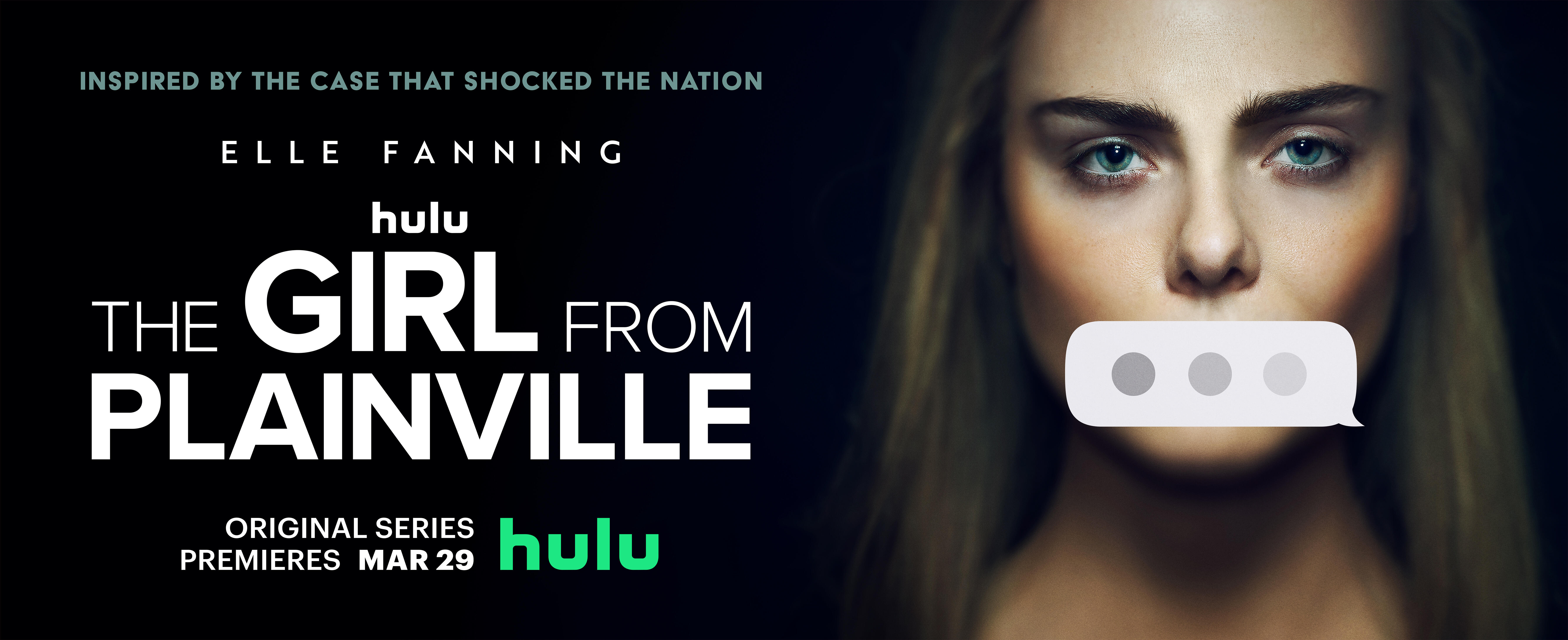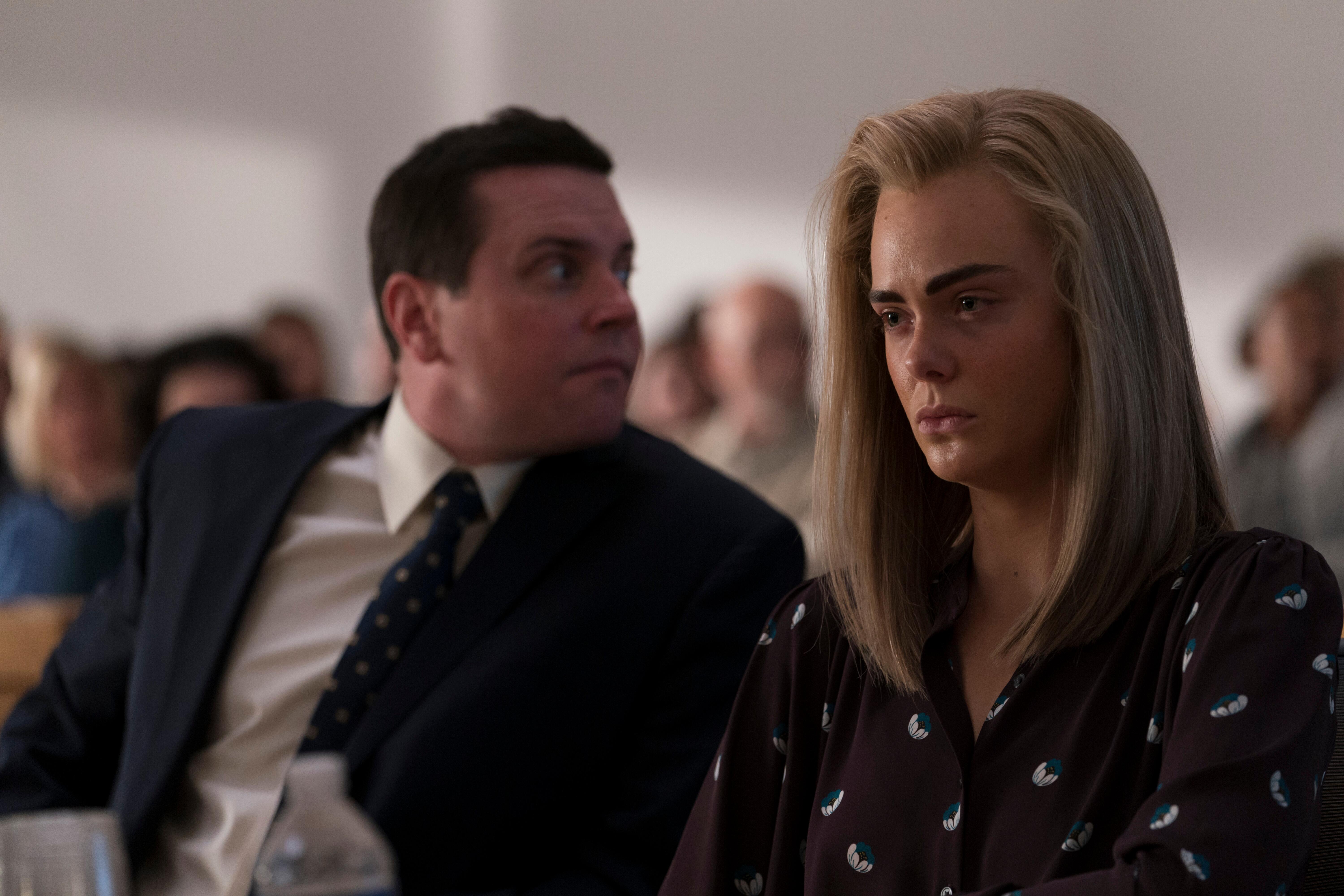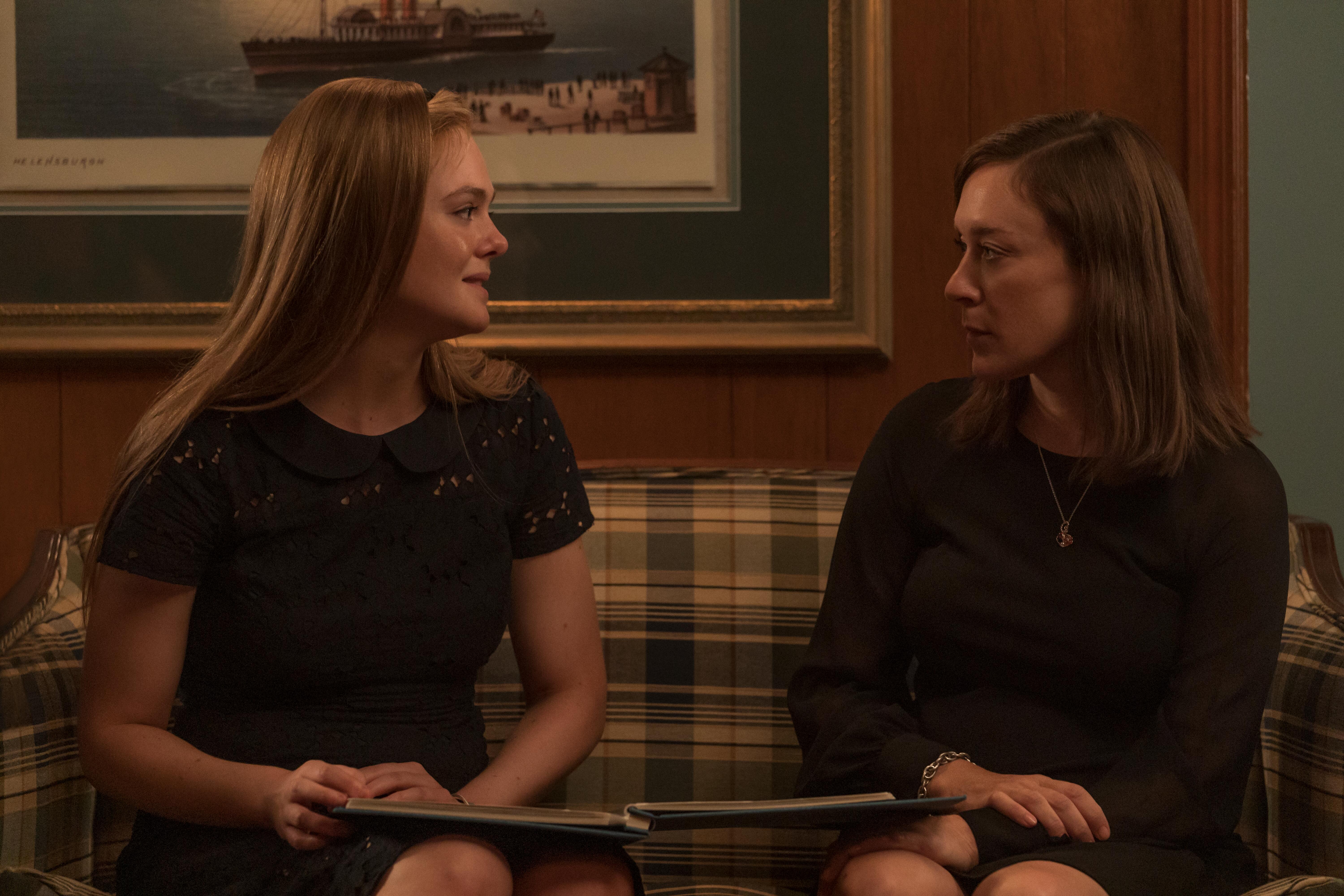By Christopher James
 Elle Fanning tackles the role of Michelle Carter, the teen who convinced her boyfriend to take his own life, in "The Girl From Plainville."The trend of documentaries getting turned into narrative miniseries continues with The Girl from Plainview on Hulu. The case of The Commonwealth vs. Michelle Carter has been widely reported on through documentary and deep dive articles. The story touches on so many hot button items: teenage suicide, social media, bullying in relationships and whether one can prosecute someone over texts.
Elle Fanning tackles the role of Michelle Carter, the teen who convinced her boyfriend to take his own life, in "The Girl From Plainville."The trend of documentaries getting turned into narrative miniseries continues with The Girl from Plainview on Hulu. The case of The Commonwealth vs. Michelle Carter has been widely reported on through documentary and deep dive articles. The story touches on so many hot button items: teenage suicide, social media, bullying in relationships and whether one can prosecute someone over texts.
So does the new Hulu series have more to say on the topic that has already been said?
 Elle Fanning gives a commanding performance as Michelle Carter, the titular "Girl from Plainville."Yes and no. The twisted love story of Conrad “Coco” Roy III (Colton Ryan) and Michelle Carter (Elle Fanning) is chopped up and told over eight episodes. The two teens met on a trip to Florida and realized they live roughly an hour away from each other in Massachusetts. Soon, a relationship between the two is born that their friends or family are unaware of. Though they only meet a few times, they talk almost every day over text. Their relationship deepens to an insane degree to the point that Coco decides to take his life. Michelle is texting him along the way, encouraging and even commanding him to do it. Following his death, Michelle tries to ingratiate herself with Coco’s family, notably his mother Lynn (Chloe Sevigny). However, it isn’t long before the police find Coco’s phone and mount a case against Michelle, potentially establishing a precedent setting decision on manslaughter via text.
Elle Fanning gives a commanding performance as Michelle Carter, the titular "Girl from Plainville."Yes and no. The twisted love story of Conrad “Coco” Roy III (Colton Ryan) and Michelle Carter (Elle Fanning) is chopped up and told over eight episodes. The two teens met on a trip to Florida and realized they live roughly an hour away from each other in Massachusetts. Soon, a relationship between the two is born that their friends or family are unaware of. Though they only meet a few times, they talk almost every day over text. Their relationship deepens to an insane degree to the point that Coco decides to take his life. Michelle is texting him along the way, encouraging and even commanding him to do it. Following his death, Michelle tries to ingratiate herself with Coco’s family, notably his mother Lynn (Chloe Sevigny). However, it isn’t long before the police find Coco’s phone and mount a case against Michelle, potentially establishing a precedent setting decision on manslaughter via text.
In the titular role, Elle Fanning wows with her technical prowess. Yes, at times the level of intensity she brings to Michelle Carter brings to mind Tracey Flick, if she were only concerned with maintaining relationships rather than grades or elections. Still, it is incredible how well Fanning is able to recreate Michelle’s looks and mannerisms. The devil is in the details, and moments where she’s emotionally reacting to Glee or flipping out over an unresponded text are when Fanning is strongest.
As good as Fanning is scene-to-scene, it sometimes feels like she’s playing different characters throughout an episode. This is perhaps the major flaw of the structure of the show, which jumps back and forth in time with abandon. There also aren’t major makeup or clothing changes to signal jumps in time, so often the audience is left guessing as to where we are based on the character’s actions. This is a major reason why Colton Ryan’s Coco feels underdeveloped. Most of his scenes are imagined, as text conversations that occurred between Coco and Michelle are dramatized with both actors inhabiting the same space. These bold swings work in some moments, like a dream ballet set to a Glee cover. However, the dramatic conceits of the show aren’t well established enough to fully work.
 Chloe Sevigny delivers a heartbreaking performance as Lynn, a mother whose son dies by suicide.While Elle Fanning excels, best in show goes to Chloe Sevigny as Coco’s mother, Lynn. The role of “mother of dead son” has long been a baity role, one involving tearful breakdowns, smashing plates and the potential to really chew the scenery. Sevigny eschews from these conventions. Instead, she makes Lynn’s depression tangible, interesting and dramatic. In silence, one feels the apathy and hurt behind her sullen eyes. Lynn is a woman just trying to make it through the day, even as the hurt just becomes harder rather than easier. There’s an exasperation to her in every scene, particularly when she has to deal with her former in-laws. The Roys are the ones who feel the need to process their emotions in public, particularly the grandfather, Conrad Roy (Peter Gerety). They want to fight Lynn, potentially someone to blame. She doesn’t have the energy to fight. She just ignores them as she tries to soldier on. Sevigny also manages to give us a glimpse into who Lynn was before Coco’s death. There’s a bawdy playfulness to her, as seen in moments between her and Coco, as well as with wine nights with her best friend. It’s a fully realized performance from a chronically undersung actress.
Chloe Sevigny delivers a heartbreaking performance as Lynn, a mother whose son dies by suicide.While Elle Fanning excels, best in show goes to Chloe Sevigny as Coco’s mother, Lynn. The role of “mother of dead son” has long been a baity role, one involving tearful breakdowns, smashing plates and the potential to really chew the scenery. Sevigny eschews from these conventions. Instead, she makes Lynn’s depression tangible, interesting and dramatic. In silence, one feels the apathy and hurt behind her sullen eyes. Lynn is a woman just trying to make it through the day, even as the hurt just becomes harder rather than easier. There’s an exasperation to her in every scene, particularly when she has to deal with her former in-laws. The Roys are the ones who feel the need to process their emotions in public, particularly the grandfather, Conrad Roy (Peter Gerety). They want to fight Lynn, potentially someone to blame. She doesn’t have the energy to fight. She just ignores them as she tries to soldier on. Sevigny also manages to give us a glimpse into who Lynn was before Coco’s death. There’s a bawdy playfulness to her, as seen in moments between her and Coco, as well as with wine nights with her best friend. It’s a fully realized performance from a chronically undersung actress.
While so many moments soar, others fall flat. The weakest portion of the series involves the lawyers assigned to prosecute Michelle, led by Aya Cash as hard-nosed attorney Katie Rayburn. It’s not just that Cash seems to play to the back of the house with her role, never able to sell an arc that is too quickly wrapped up. The scenes involving the case strategy are some of the worst written sections of dramatic TV today. One particularly laughable scene depicts an “aha” moment around a pool table. Had the show tightened up and been more of a character study and lost the court moments, it would’ve been much better.
The Girl From Plainville is frustrating, but perhaps that’s the point. It’s hard to understand why Michelle Carter pushed Coco to take his own life. Both were teens that were suffering, but that doesn’t give Michelle the right to do what she did. The show sets up that it wants to find a “why,” only to shrug its shoulders. Who knows why? It doesn’t even seem like Michelle knows. There’s something interesting, leaving room for interpretation from the viewer. It’s a bold move that pays off once the miniseries finishes. The "why" doesn’t matter because that won’t bring back Coco. The series is well-made, if not entirely necessary. Other than seeing some fantastic performances, it doesn’t necessarily add too much to the HBO documentary I Love You, Now Die: The Commonwealth V. Michelle Carter. Still, for those that want to sit in the discomfort of the case, The Girl from Plainville is worth the time investment. B-
New episodes of The Girl From Plainville will drop weekly on Tuesdays on Hulu. The first three episodes are available now.